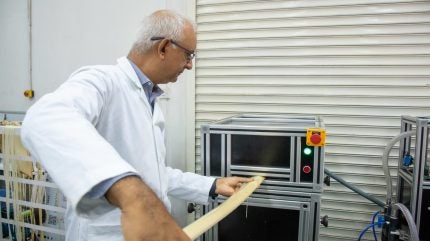
The University of Mauritius has initiated a hands-on training project aimed at strengthening local capacity and equipping communities with the skills to support a transition to a circular economy.
The initiative, titled ‘Enhancing the Livelihood of Vulnerable Groups through Circular Economy and Development of Green Products as Replacement for Single-Use Plastics’, is supported by the United Nations Development Programme’s (UNDP) Global Environment Facility Small Grants Programme (GEF SGP).
Hosted at the institution’s Faculty of Engineering, the one-day training sessions are led by Professor Haree Ramasawmy and involve 18 to 20 participants from various backgrounds.
The initiative, which will run until the end of May this year, starts with an introduction to circular economy concepts, resource efficiency, and the importance of replacing harmful materials such as single-use plastics with biodegradable alternatives.
Participants will then move to the Non-Woven Laboratory for practical demonstrations and experience with machinery developed under the project.
These machines, including a fibre-extracting machine, a pulping machine, and a moulding machine, are used to create biodegradable products such as plant pots and food containers.
Ten selected trainees will later receive these machines.
Aligned with the upcoming global Plastic Treaty, the initiative falls under the UNDP GEF SGP Plastic Innovation Programme and supports Mauritius’ efforts to reduce plastic waste and embrace circular development models.
In October 2024, UNDP and Danish think tank Circular Innovation Lab partnered to promote circular economy solutions tackling plastic pollution.



